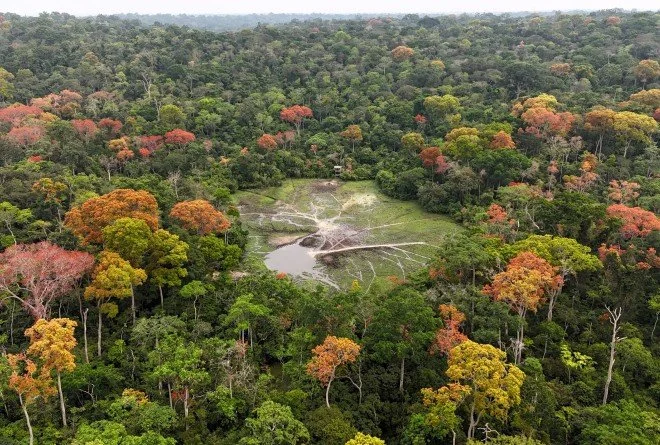Syncerus
In 2021, I founded SYNCERUS, a non-profit named after Syncerus caffer nanus, the African forest buffalo. Its mission is to advance research in Africa while supporting local development and student exchange.
The project focuses on building a biobank by collecting fecal samples from all sympatric host species at a single Central African site over several years, using both cultivation and DNA-based methods to study intestinal eukaryote diversity.
Through collaborations with labs in fields such as immunology, ecology, genetics, and ethology, and across multiple host taxa, we aim to create a robust database to address key questions on biodiversity and host–parasite interactions.
Our research seeks to answer key questions about the ecology of intestinal eukaryotes, with a focus on taxa such as Blastocystis. Most existing data come from captive or domestic animals with altered gut microbiota, while wild species offer more accurate ecological models. By studying multiple sympatric species, we aim to uncover diversity patterns, host distribution, and potential transmission routes. Combining microscopy with third-generation sequencing will allow us to distinguish resident from transient taxa. To support this, we plan to establish a small field research station equipped for cultivation and microscopy.
We will also investigate colonization duration across host species to better understand host specificity. The resulting database will enable us to address broader ecological and functional questions, including:
How consistent are eukaryote–bacteria–host health relationships across species?
Which host traits influence these interactions?
How do diets shape eukaryote diversity and abundance? (e.g., across seasons, between species, or among individuals assessed via metagenomics)
How do these relationships fluctuate over time (e.g., with seasonal change, aging, shifts in social status, or disease)?
Do bacterial communities shift when a new eukaryote colonizes the gut?
Do eukaryote communities shift with host life history or health changes?
Are these patterns consistent across species?
Ultimately, this work will deepen our understanding of intestinal eukaryote ecology and inform how these organisms can be leveraged or managed in the context of infectious and microbiome-associated diseases.

